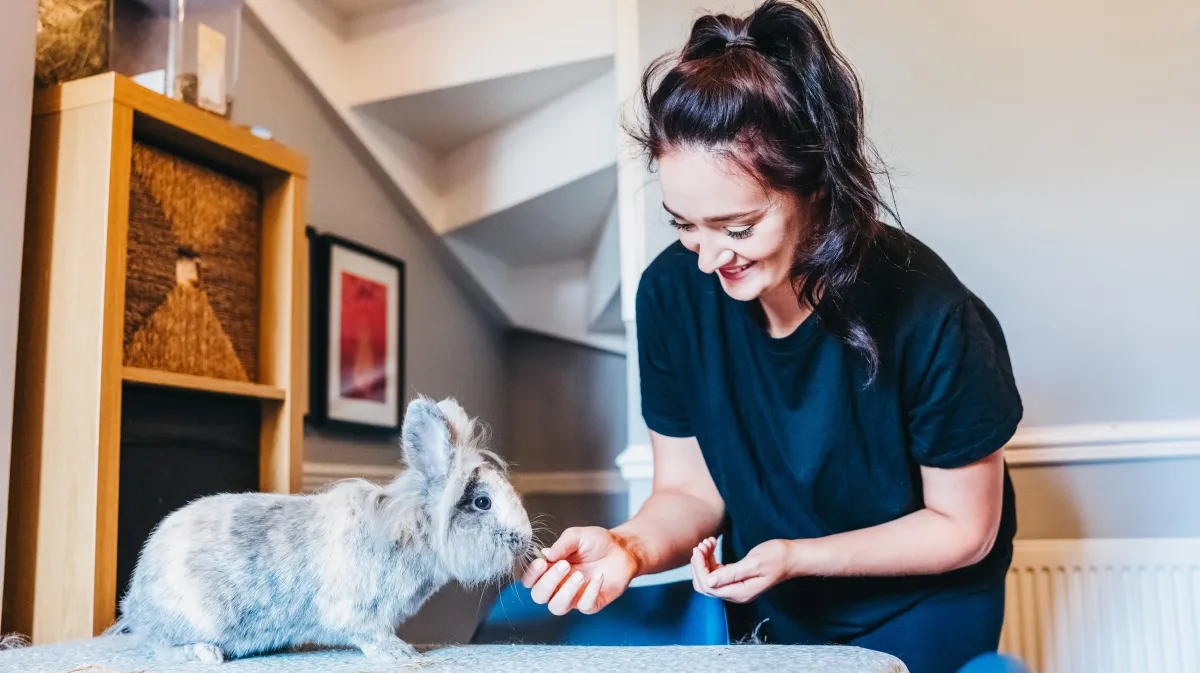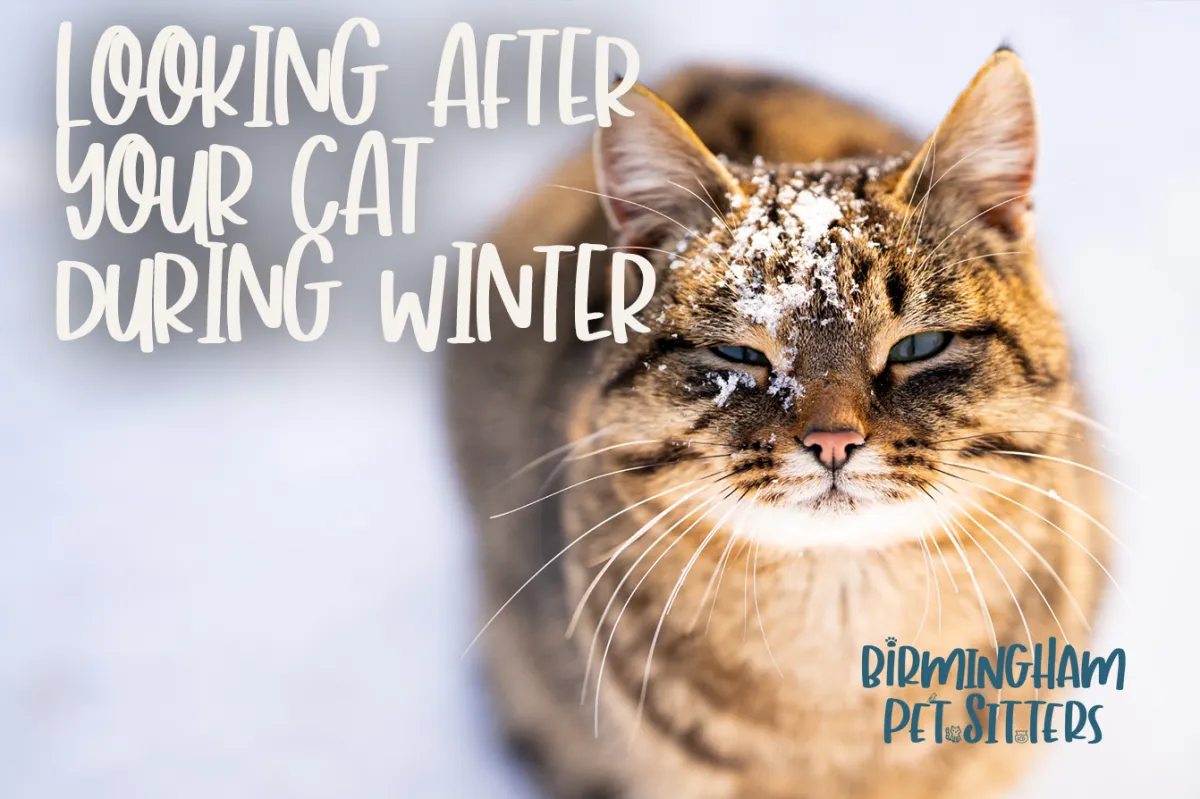Pet Sitters in Birmingham & Solihull
Drop in Pet Visits to Your Home
Pet Sitters in Birmingham & Solihull
Pet Visits to Your Home
Leave Your Pet in Safe Hands
Same pet sitter each time ✔
Regular photo & video updates ✔
Homecare included ✔
Free pre-visit included ✔
Trusted by pet owners ✔

Leave Your Pet
in Safe Hands
Same pet sitter each time ✅
Daily photo & video updates ✅
Homecare included ✅
Free pre-visit included ✅
Trusted by pet owners ✅

About Us
Hello and welcome to our page!
We’re Marie & Michael, the founders of Birmingham Pet Sitters.
Like many pet owners, we struggled to find the right pet sitters for our cat.
Whether we were away on holiday, busy working, or just away from home, we couldn’t find a reliable sitter who our cat felt comfortable with.
So, we decided to set up Birmingham Pet Sitters to help take some of those issues away from pet owners in Birmingham and Solihull.
Hopefully, we’ll speak soon!

About Us
Hello and welcome to our page!
We’re Marie & Michael, the founders of Birmingham Pet Sitters.
Like many pet owners, we struggled to find the right pet sitters for our cat.
Whether we were away on holiday, busy working, or just away from home, we couldn’t find a reliable sitter who our cat felt comfortable with.
So, we decided to set up Birmingham Pet Sitters to help take some of those issues away from pet owners in Birmingham and Solihull.
Hopefully, we’ll speak soon!

Our Visits
Our drop in visits to your home allow us to take care of your pet when you’re not able to.
Whether you're going away on holiday, working long hours or just need someone to look after your pet, we're here to help.
Each visit is 25 minutes and includes:
• Feeding, water & playtime
• Litter tray refresh
• Homecare
• Photo/video updates via WhatsApp
• Up to 3 pets per household
• Dog walking available

Our Visits
Our drop in visits to your home allow us to take care of your pet when you’re not able to.
Whether you're going away on holiday, working long hours or just need someone to look after your pet, we're here to help.
Each visit is 25 minutes and includes:
• Feeding, water & playtime
• Litter tray refresh
• Homecare
• Photo/video updates via WhatsApp
• Up to 3 pets per household
• Dog walking available

FAQs
How much do you charge?
Each drop-in visit is £12.50.
Which areas do you cover?
We cover all areas of Birmingham and Solihull.
Do you offer dog walking?
Yes, we offer dog walking in Birmingham and Solihull.
The price is £13 p/h with a maximum of 2 dogs per household.
Will it be the same visitor each time?
Yes! We are a family business so it will always be Marie or Michael who visits.
This allows us to build a bond with your pet, making them as comfortable as possible.
How do we give you access to our home?
A few days prior to our visit we will collect your house keys from you.
On a pre-visit call, you can confirm any alarm codes or special access information that we need.
What happens if your pet needs an emergency pet visit?
If your pet needs an emergency pet visit, we will take them to either the nearest vet or the veterinary clinic that you are registered with.
We can cover any vet costs (to a certain point) until you are back, when you can then reimburse us.


Frequently Asked Questions
Which areas do you cover?
We cover all areas of Birmingham and Solihull.
Do you offer dog walking?
Yes, we offer dog walking in Birmingham and Solihull.
The price is £13.50 p/h with a maximum of 2 dogs per household.
Will it be the same visitor each time?
Yes! We are a family business so it will always be Marie or Michael who visits.
This allows us to build a bond with your pet, making them as comfortable as possible.
How do we give you access to our home?
A few days prior to our visit we will collect your house keys from you.
On a pre-visit call, you can confirm any alarm codes or special access information that we need.
How much do you charge?
Each drop in visit is £12.50.
What happens if your pet needs an emergency pet visit?
If your pet needs an emergency pet visit, we will take them to either the nearest vet or the veterinary clinic that you are registered with.
We can cover any vet costs (to a certain point) until you are back, when you can then reimburse us.
Get in Touch
[email protected]
07527781004
Latest Blog Posts
Check out our latest blogs.

Looking After Your Cat During Winter
Winter can be a challenging time for both humans and pets. As temperatures drop and daylight hours decrease, its essential to adjust your cats care routine to keep them safe, warm, and healthy.
While winter brings a chill to the air, it’s the perfect opportunity to create a warm and inviting space for your furry little buddy.
Whether your cat is an indoor companion or enjoys the great outdoors, here are a few tips that will help you create a winter haven for you and your pet.
Cats and Cold Weather
Cats are naturally resilient creatures, but their ability to tolerate cold varies depending on their breed, age, health, and coat thickness.
Some breeds, like the Maine Coon and Norwegian Forest Cat, have thick, water-resistant fur that helps them endure colder temperatures, whereas short-haired or hairless breeds, like the Sphynx, are more vulnerable to the harshness of winter.
Kittens, senior cats, and those with underlying health conditions are particularly susceptible to the cold.
Even healthy adult cats can suffer from hypothermia or frostbite if exposed to freezing temperatures for too long.

Creating a Perfect Indoor Environment
If your cat spends most of its time indoors, you’ll need to make some adjustments to ensure they stay warm and comfortable.
Here are a few things you can do:
Provide Warm Sleeping Spots - Cats love warm places and are known to be heat traps. offering them cozy blankets, soft beds, or heated pet pads are a good way to make sure they’re keeping warm.
Padded and plush bedding helps to retain their body heat. Positioning their sleeping area away from drafts, windows, and doors is a great and simple idea.
Consider placing their bed near a radiator but ensure it’s at a safe distance to prevent overheating. Cats often prefer elevated spaces because heat rises.
2. Loud Noises - During winter there can be all kinds of disturbances to your furry friend such as storms and fireworks, playing gentle low music can help to drown out these loud noises and help keep your cat feeling safe and secure.
Soft classical music or white noise machines can create a calming atmosphere. Cats enjoy the sound of gentle purring tracks or nature sounds.
Provide a View of the Outdoors - Set up a window perch so your cat can watch birds and snowfall outside.
Bird feeders placed near windows offer entertainment and stimulation whilst staying in the warmth.
Open curtains during the day to let in natural sunlight which can also providing a warm basking spot. Cats love curling up in sunny spots, so make sure they have access to window sills or sunny areas.
Outdoor Cats
If your cat is an outdoor cat, it is wise to limit outdoor time during the winter.
Encourage your cat to stay indoors more often when temperatures drop significantly.
If they insist on going outside, supervise them or let them out for short periods during the warmest part of the day.
Cats can get lost in heavy snow, so ensure they wear a breakaway collar with an ID tag and are micro chipped.

Grooming & Coat Care
Your cats’ fur is their natural defence against the cold, so keeping it in good condition is essential.
Brushing removes loose fur and prevents matting, which can reduce insulation.
Long- haired cats need extra grooming to prevent knots and tangles.
Regular brushing also stimulates circulation, helping to keep your cat warm.
Diet Considerations
Winter affects your cats’ dietary needs and hydration levels. Adjusting their diet might be necessary.
Outdoor cats burn more energy to stay warm, so they may need extra calories in winter. Indoor cats may be less active and prone to weight gain, so monitor their food intake accordingly.
High-protein diets can help maintain body warmth and energy levels.
Cats often drink less in winter, but hydration is crucial. If your cats water bowl is outside, check it frequently to ensure it hasn’t frozen. Consider using heated water bowls for outdoor cats.
If your cat is reluctant to drink, try adding warm water to their food or offering wet food, which has a higher moisture content.
Providing your catwith a cat safe bone broth or cat milk are other ways to get your cat to stay hydrated.
It is usually safe to serve these a little warm which may be more appealing to your cat. Avoid serving food straight from the fridge.
Keeping Your Cat Active During Winter
Keeping your cat mentally and physically engaged is essential, especially if they spend most of their time indoors.
Boredom can lead to destructive behaviours, stress, and weight gain, so providing the right toys will keep your feline friend happy, active, and entertained.
Some of the best interactive cat toys are:
Automated Laser Pointers
Motion activated toys such as flappy fish, tweeting birds or robotic mice.
Fishing rod feather or ribbon wand toys.
Food puzzle toys
Treat balls or puzzle boxes.
Plush catnip toys.
Cat trees for climbing and cat posts for scratching
Indoor cats need mental and physical stimulation to stay happy and healthy. The best toys mimic hunting behaviours like stalking, chasing, pouncing, and kicking.
By offering a variety of interactive, treat-dispensing, and movement-based toys, you’ll keep your feline entertained all year round.
Conclusion
Caring for your cat during winter requires a little extra effort, but ensuring their warmth, safety, and comfort is well worth it.
Whether it’s keeping them snug indoors, making outdoor adventures safer, or monitoring their health, small adjustments can make a big difference.
By taking these steps, you’ll keep your feline friend happy and healthy throughout the colder months.
Get in Touch
[email protected]
07527781004
Latest Blog Posts
Check out our latest blogs.

Looking After Your Cat During Winter
Winter can be a challenging time for both humans and pets. As temperatures drop and daylight hours decrease, its essential to adjust your cats care routine to keep them safe, warm, and healthy.
While winter brings a chill to the air, it’s the perfect opportunity to create a warm and inviting space for your furry little buddy.
Whether your cat is an indoor companion or enjoys the great outdoors, here are a few tips that will help you create a winter haven for you and your pet.
Cats and Cold Weather
Cats are naturally resilient creatures, but their ability to tolerate cold varies depending on their breed, age, health, and coat thickness.
Some breeds, like the Maine Coon and Norwegian Forest Cat, have thick, water-resistant fur that helps them endure colder temperatures, whereas short-haired or hairless breeds, like the Sphynx, are more vulnerable to the harshness of winter.
Kittens, senior cats, and those with underlying health conditions are particularly susceptible to the cold.
Even healthy adult cats can suffer from hypothermia or frostbite if exposed to freezing temperatures for too long.

Creating a Perfect Indoor Environment
If your cat spends most of its time indoors, you’ll need to make some adjustments to ensure they stay warm and comfortable.
Here are a few things you can do:
Provide Warm Sleeping Spots - Cats love warm places and are known to be heat traps. offering them cozy blankets, soft beds, or heated pet pads are a good way to make sure they’re keeping warm.
Padded and plush bedding helps to retain their body heat. Positioning their sleeping area away from drafts, windows, and doors is a great and simple idea.
Consider placing their bed near a radiator but ensure it’s at a safe distance to prevent overheating. Cats often prefer elevated spaces because heat rises.
2. Loud Noises - During winter there can be all kinds of disturbances to your furry friend such as storms and fireworks, playing gentle low music can help to drown out these loud noises and help keep your cat feeling safe and secure.
Soft classical music or white noise machines can create a calming atmosphere. Cats enjoy the sound of gentle purring tracks or nature sounds.
Provide a View of the Outdoors - Set up a window perch so your cat can watch birds and snowfall outside.
Bird feeders placed near windows offer entertainment and stimulation whilst staying in the warmth.
Open curtains during the day to let in natural sunlight which can also providing a warm basking spot. Cats love curling up in sunny spots, so make sure they have access to window sills or sunny areas.
Outdoor Cats
If your cat is an outdoor cat, it is wise to limit outdoor time during the winter.
Encourage your cat to stay indoors more often when temperatures drop significantly.
If they insist on going outside, supervise them or let them out for short periods during the warmest part of the day.
Cats can get lost in heavy snow, so ensure they wear a breakaway collar with an ID tag and are micro chipped.

Grooming & Coat Care
Your cats’ fur is their natural defence against the cold, so keeping it in good condition is essential.
Brushing removes loose fur and prevents matting, which can reduce insulation.
Long- haired cats need extra grooming to prevent knots and tangles.
Regular brushing also stimulates circulation, helping to keep your cat warm.
Diet Considerations
Winter affects your cats’ dietary needs and hydration levels. Adjusting their diet might be necessary.
Outdoor cats burn more energy to stay warm, so they may need extra calories in winter. Indoor cats may be less active and prone to weight gain, so monitor their food intake accordingly.
High-protein diets can help maintain body warmth and energy levels.
Cats often drink less in winter, but hydration is crucial. If your cats water bowl is outside, check it frequently to ensure it hasn’t frozen. Consider using heated water bowls for outdoor cats.
If your cat is reluctant to drink, try adding warm water to their food or offering wet food, which has a higher moisture content.
Providing your catwith a cat safe bone broth or cat milk are other ways to get your cat to stay hydrated.
It is usually safe to serve these a little warm which may be more appealing to your cat. Avoid serving food straight from the fridge.
Keeping Your Cat Active During Winter
Keeping your cat mentally and physically engaged is essential, especially if they spend most of their time indoors.
Boredom can lead to destructive behaviours, stress, and weight gain, so providing the right toys will keep your feline friend happy, active, and entertained.
Some of the best interactive cat toys are:
Automated Laser Pointers
Motion activated toys such as flappy fish, tweeting birds or robotic mice.
Fishing rod feather or ribbon wand toys.
Food puzzle toys
Treat balls or puzzle boxes.
Plush catnip toys.
Cat trees for climbing and cat posts for scratching
Indoor cats need mental and physical stimulation to stay happy and healthy. The best toys mimic hunting behaviours like stalking, chasing, pouncing, and kicking.
By offering a variety of interactive, treat-dispensing, and movement-based toys, you’ll keep your feline entertained all year round.
Conclusion
Caring for your cat during winter requires a little extra effort, but ensuring their warmth, safety, and comfort is well worth it.
Whether it’s keeping them snug indoors, making outdoor adventures safer, or monitoring their health, small adjustments can make a big difference.
By taking these steps, you’ll keep your feline friend happy and healthy throughout the colder months.

